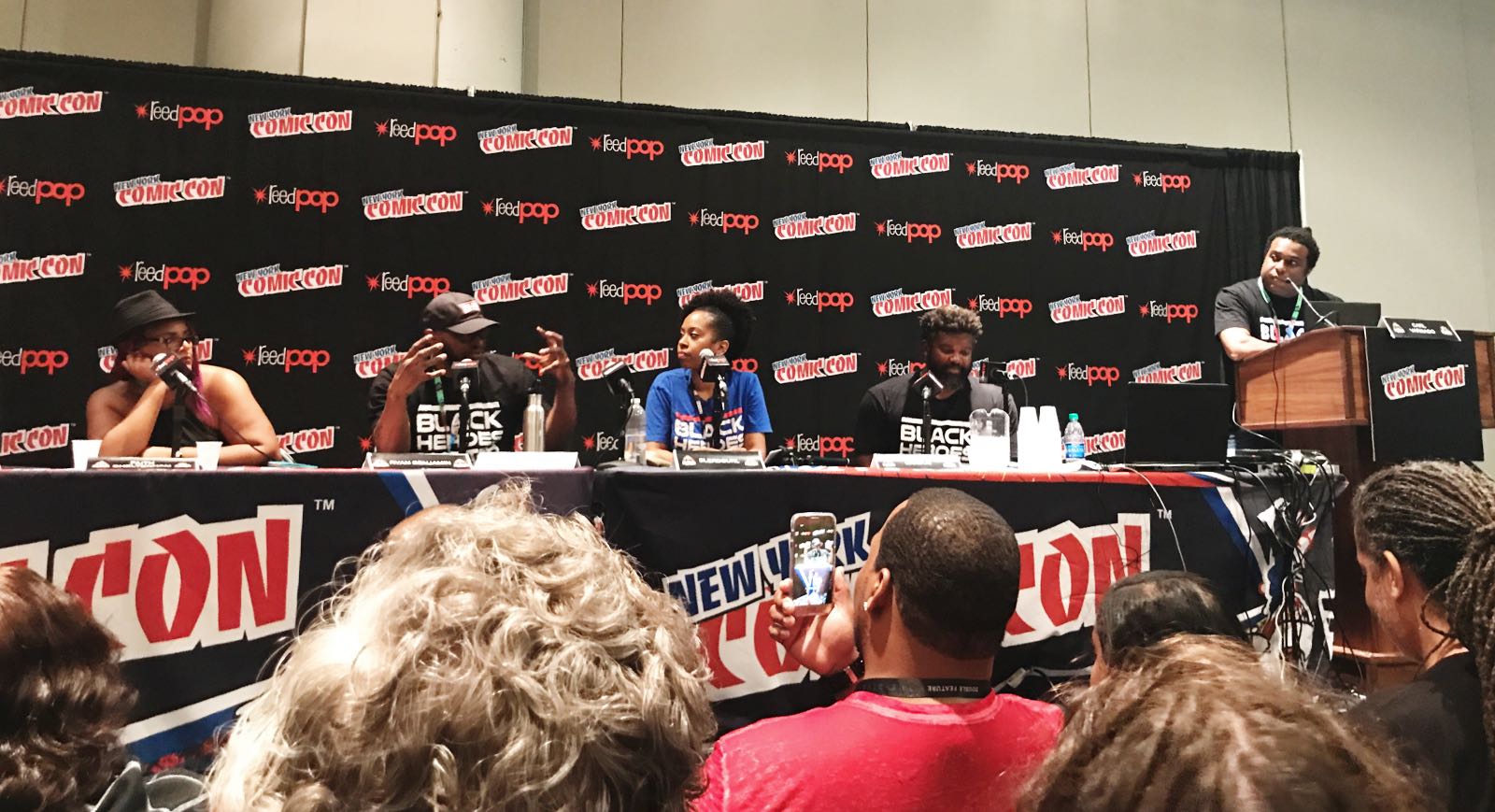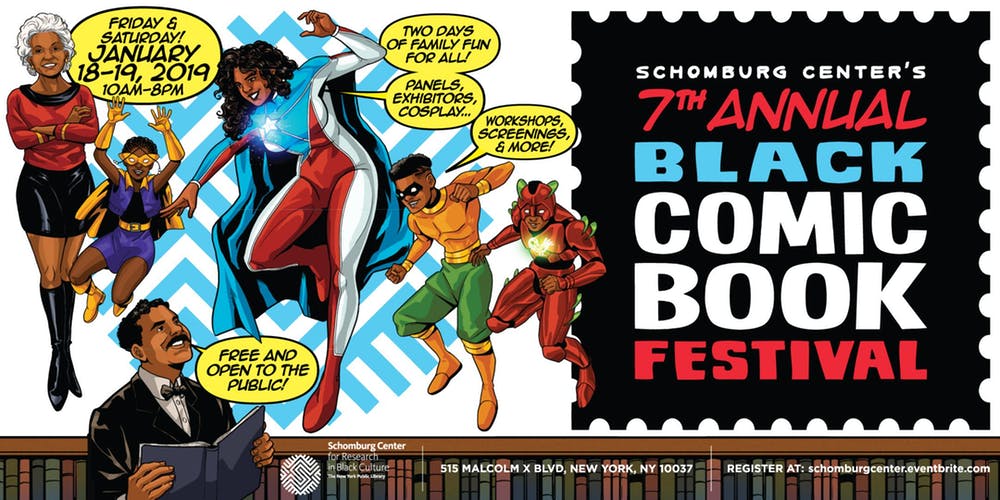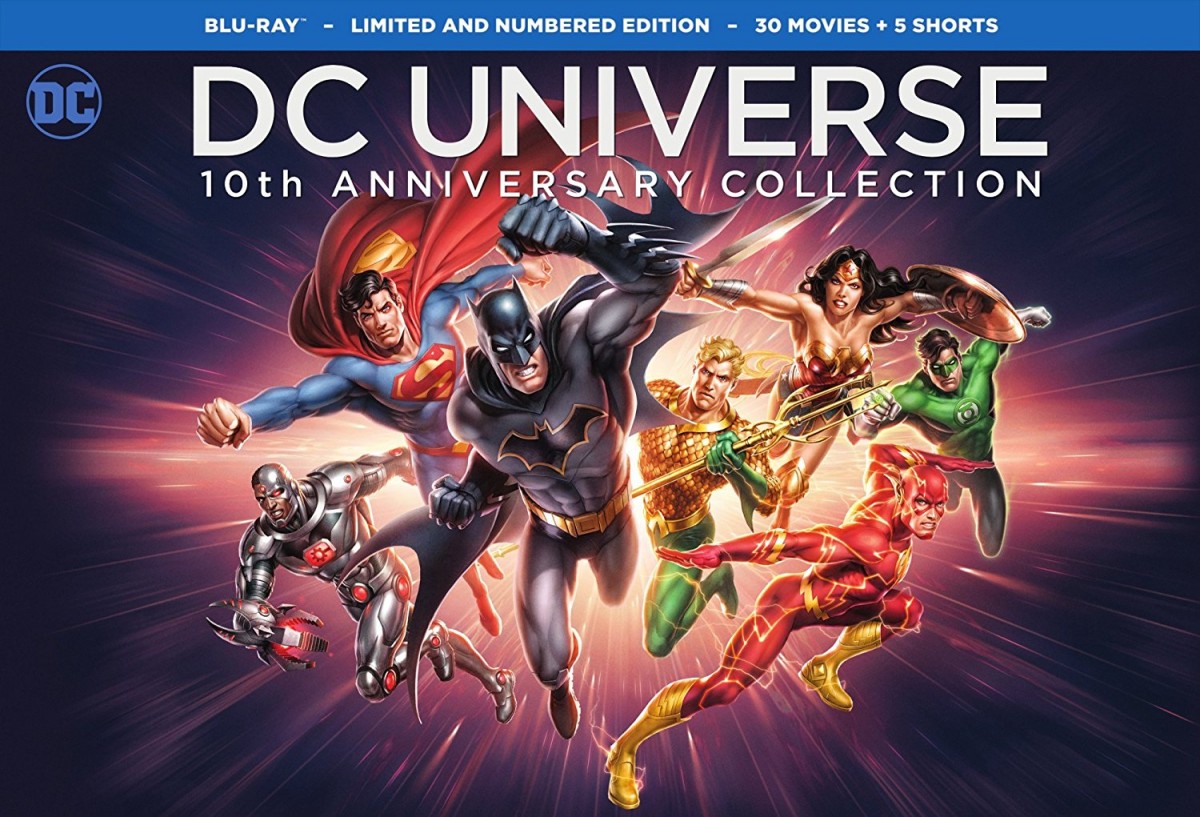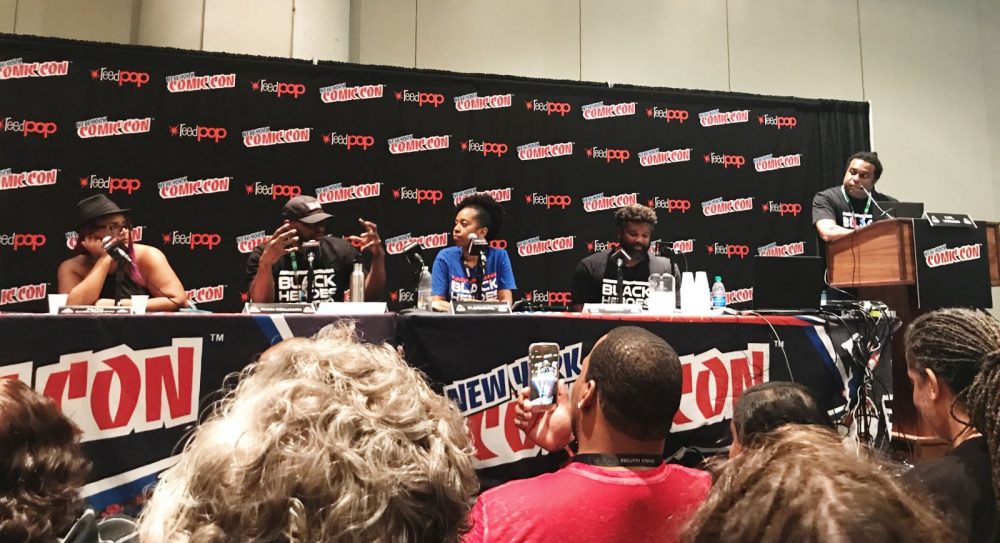
Rushing over from another panel, I was one of the last 25 people able to enter the conference hall at the Javits Center for the Black Heroes Matter panel. Many others weren’t so lucky, forced to wait outside. The 2017 panel proved to be just as popular as the 2016 panel of the same name, it’s clear the panel needs a larger room to accommodate the interest level of convention goers.
Panelists took their seats, some donning the Black Heroes Matter t-shirt by creator of the movement and fellow panelist Brother Uraeus (Jacyen Wise). The movement began as an effort to draw attention to independent Black publishers, creators and artists, but it’s grown as a rallying cry to champion Black culture within the comics industry.
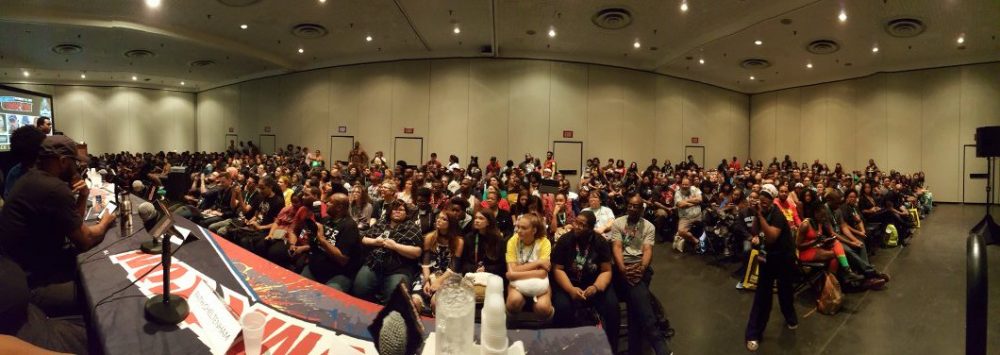
For moderator Carl Varnado (Blacks in Gaming) one of the first experiences he had with a Black hero was Winston Zeddmore from Ghostbusters. As a child he loved science-fiction but it wasn’t until he saw Ghostbusters that he was able to see a Black man save the day. By that time he had watched hundreds of hours worth of science fiction programming and films, but it wasn’t until that movie that he was able to internalize the idea that he could be a hero, that he could save the day. That sentiment helps to inform the movement and also served as a jumping off point for the panel’s discussion.
Faith Cheltenham (activist, YesBlackPeople.com) recalls dealing with sexual harassment the earlier aughts as a creator of Tor.com. This harassment ultimately lead to her leaving the science fiction and comics community to join the Obama campaign and White House. Since leaving the administration in 2016, Cheltenham has refocused her efforts on amplifying Black voices and culture along with her husband.
Illustrator Ryan Benjamin (Batman Beyond) grew up in the Caribbean and recalled not being exposed to much racism until he stepped foot in the U.S. “It kind of slapped me in the face because I never really experienced it as a kid.”
Karama Horne (reporter and podcaster) who is better known as The Blerdgurl remembers identifying with Star Trek’s Uhura (played by Nichelle Nichols). Uhura was always in it, even if she wasn’t speaking, she knew what was happening. The Blerdgurl says she’s always had to navigate spaces the way Uhura has. “I integrated my elementary school, I was the only Black kid in my class, I was the only kid in my entire school until my brother’s got there.” She added, “So many times I was the only one in the room.” In great and exciting news for The Blerdgurl (part of the ComicsBeat family) announced she will have a comics news show on SyFy Wire.
For Uraeus, his sons helped inspire him to advocate for more Black heroes. In what was one of the most poignant moments of the panel he said, “We desperately need our young people to believe they can take on any problem, any situation, any crisis that confronts them. Things that are happening are unprecedented, the things that will likely happen in their lifetime are things we can’t even imagine. It’s critical that they believe they can save the world because they just might to. The hero is not in the comic book, the hero is you.”
When it comes to navigating how to revamp comics which previously engaged in blaxploitation the panelists had a few words of warning. Writer David Walker says, “A lot of these characters were created by white folks. Like Luke Cage, who was clearly written by white people who didn’t know black people. ” He added, “My goal [with revamping Luke Cage] is to give black people their humanity. Let’s take these iconic characters and turn them around.”
The moderator brought up the upcoming release of Black Panther and multiple other pending superhero series featuring Black males. Faith Cheltenham was quick to interject that while the appearance of Black men has increased in films and television, the same isn’t true for Black women. Cheltenham also noted that even though Black men may appear in these films and TV shows, they may not be the ones profiting off of their work. A reference to the white male dominated industry that is film and TV.
Horne mentioned how so often people in the Black community are told to go out there and create the content they want to see to which she responded, “We are! We’re out there making our own content but we don’t have the same media machines behind us.” This set off an important discussion about hiring Black people and getting more people to care about movements like Black Heroes Matter and Black Lives Matter. It’s not enough to have the same people coming to panels like this one. The panelists implored the audience to bring others to the next panel, to tell their friends about Black creators and businesses and more importantly, to buy from them. The hope is that there will be more action and movement tied to awareness raising panels like this one.
The panelists discussed the frequent misunderstandings people, especially white people have about movements like Black Heroes Matter. Horne explained the popular current media narrative which suggests that there is a binary, that if someone says Black Lives Matter that no other lives do, “Of course they do, that’s not what it’s about.” It’s about giving awareness to a system which has denigrated and denied the liberation and freedom of Black people in government, in the justice system, and in culture.
Ultimately what this panel is about, what Black Heroes Matter is about, is a celebration and call to action. A call to demand heroes for Black people within the comics community and beyond. A call to amplify the voices and work of Black creators. A call to lift one another up and demand accountability from those who profit off of the work, language, and culture of the Black community. It’s a movement dedicated to ensuring that every child (and adult) believes they have the chance to change the world, that they can be the hero in their own lives.


